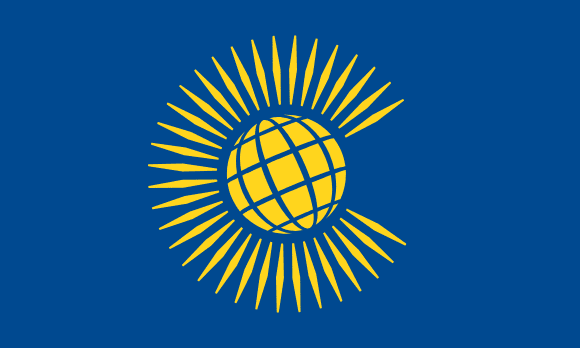- Type: Intergovernmental Organization
- Membership: 54 member states
- Establishment: Established on 11 December 1931
- Official Language(s): English
- Headquarters: London, United KingdUnion of South American Nations (UNASUR)om
The Commonwealth of Nations, commonly known as the Commonwealth, is a political association of 54 member states, nearly all of which are former territories of the British Empire. The chief institutions of the organization are the Commonwealth Secretariat, which focuses on intergovernmental aspects, and the Commonwealth Foundation, which focuses on non-governmental relations between member states.
Commonwealth of Nations History
The Commonwealth was established by the Statute of Westminster in 1931 when several countries declared themselves equal and free sovereign states, recognizing King George V as the head of the Commonwealth. The modern Commonwealth came into being 70 years ago, with the London Declaration of 1949, which modernized the community and established the member states as “free and equal.” The symbolic head of the Commonwealth is the British monarch, currently Queen Elizabeth II, who is also the monarch of 15 members of the Commonwealth.
Commonwealth of Nations Structure
The Commonwealth operates through a series of important institutions including:
- The Commonwealth Secretariat: Provides guidance on policy-making, technical assistance, and advisory services to Commonwealth member countries.
- The Commonwealth Foundation: Specializes in non-governmental organizational development, aiding civil society organizations across the countries.
- The Commonwealth of Learning: Aims to improve and promote the development and sharing of open learning/distance education knowledge, resources, and technologies.
Commonwealth of Nations Membership
Membership in the Commonwealth is based on free and equal voluntary cooperation. The main criteria for membership include an adherence to democracy, human rights, and the rule of law. Most members are former British colonies or dependencies of those colonies.
Commonwealth of Nations Objectives
Promoting Democracy and Development
The Commonwealth is committed to strengthening democracy, governance, and development in its member states. It aims to foster sustainable development, democracy, and peace within its member states.
Encouraging Economic Cooperation
The organization aims to promote economic cooperation and trade among member states, ensuring that economic benefits are shared among all members.
Supporting Multilateralism
The Commonwealth supports international cooperation and multilateralism, advocating for fair global trade systems and more inclusive governance structures.
Commonwealth of Nations Funding
The Commonwealth is funded by voluntary contributions from its member governments. These contributions help finance the Secretariat and the Foundation’s activities and programs.
Commonwealth of Nations Projects
Commonwealth Youth Program
Aims to empower young people and involve them in decision-making processes, helping them contribute meaningfully to their communities and countries.
Commonwealth Climate Finance Access Hub
Seeks to help small and vulnerable Commonwealth states access funding for projects to combat climate change and its impacts.
Commonwealth of Nations Members
Full Members
- Antigua and Barbuda
- Australia
- The Bahamas
- Bangladesh
- Barbados
- Belize
- Botswana
- Brunei Darussalam
- Cameroon
- Canada
- Cyprus
- Dominica
- Eswatini
- Fiji
- The Gambia
- Ghana
- Grenada
- Guyana
- India
- Jamaica
- Kenya
- Kiribati
- Lesotho
- Malawi
- Malaysia
- Maldives
- Malta
- Mauritius
- Mozambique
- Namibia
- Nauru
- New Zealand
- Nigeria
- Pakistan
- Papua New Guinea
- Rwanda
- Saint Kitts and Nevis
- Saint Lucia
- Saint Vincent and the Grenadines
- Samoa
- Seychelles
- Sierra Leone
- Singapore
- Solomon Islands
- South Africa
- Sri Lanka
- Tanzania
- Tonga
- Trinidad and Tobago
- Tuvalu
- Uganda
- United Kingdom
- Vanuatu
- Zambia
The Commonwealth of Nations stands as a testament to cooperation and shared values, transcending geographical and historical boundaries. Through its various programs, initiatives, and the collective effort of its members, the Commonwealth continues to make significant contributions to global issues such as democracy, development, and environmental sustainability. Its commitment to a common future and mutual support underpins the organization’s ongoing relevance and influence on the world stage.

